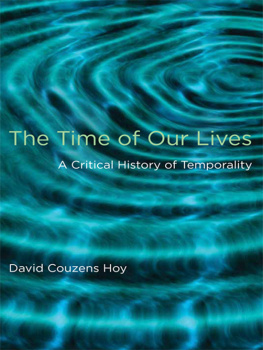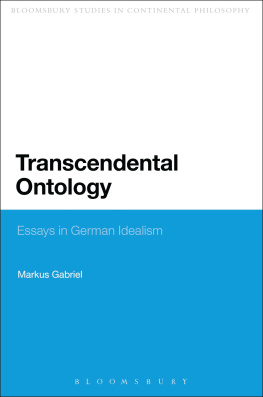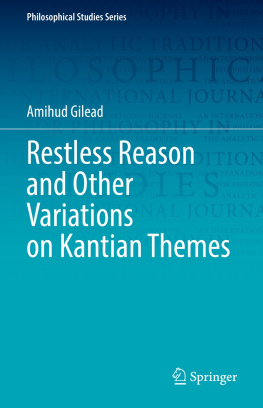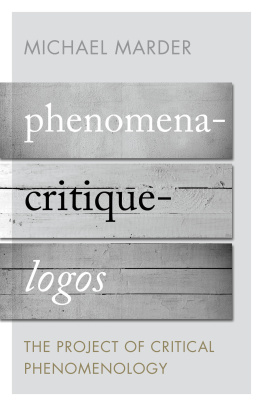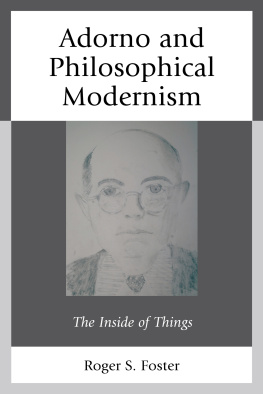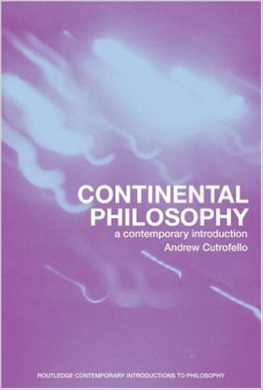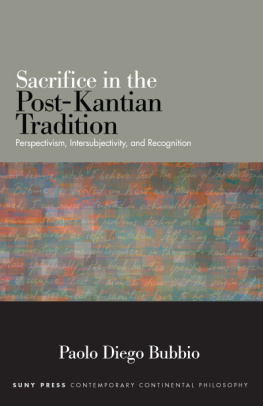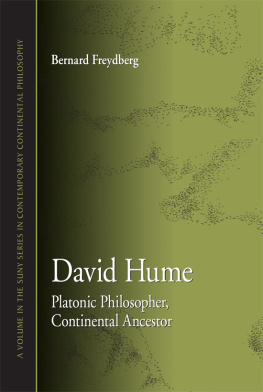David Couzens Hoy - The Time of Our Lives
Here you can read online David Couzens Hoy - The Time of Our Lives full text of the book (entire story) in english for free. Download pdf and epub, get meaning, cover and reviews about this ebook. publisher: MIT Press, genre: Romance novel. Description of the work, (preface) as well as reviews are available. Best literature library LitArk.com created for fans of good reading and offers a wide selection of genres:
Romance novel
Science fiction
Adventure
Detective
Science
History
Home and family
Prose
Art
Politics
Computer
Non-fiction
Religion
Business
Children
Humor
Choose a favorite category and find really read worthwhile books. Enjoy immersion in the world of imagination, feel the emotions of the characters or learn something new for yourself, make an fascinating discovery.
- Book:The Time of Our Lives
- Author:
- Publisher:MIT Press
- Genre:
- Rating:5 / 5
- Favourites:Add to favourites
- Your mark:
- 100
- 1
- 2
- 3
- 4
- 5
The Time of Our Lives: summary, description and annotation
We offer to read an annotation, description, summary or preface (depends on what the author of the book "The Time of Our Lives" wrote himself). If you haven't found the necessary information about the book — write in the comments, we will try to find it.
A study of the emergence in post-Kantian continental philosophy of a focus on the lived experience of temporality.
The Time of Our Lives — read online for free the complete book (whole text) full work
Below is the text of the book, divided by pages. System saving the place of the last page read, allows you to conveniently read the book "The Time of Our Lives" online for free, without having to search again every time where you left off. Put a bookmark, and you can go to the page where you finished reading at any time.
Font size:
Interval:
Bookmark:
The Time of Our Lives
A Critical History of Temporality
David Couzens Hoy
The MIT Press
Cambridge, Massachusetts
London, England
2009 Massachusetts Institute of Technology
All rights reserved. No part of this book may be reproduced in any form by any electronic or mechanical means (including photocopying, recording, or information storage and retrieval) without permission in writing from the publisher.
For information about special quantity discounts, please email
This book was set in Syntax and Times New Roman by SNP Best-set Typesetter Ltd., Hong Kong. Printed and bound in the United States of America.
Library of Congress Cataloging-in-Publication Data
Hoy, David Couzens.
The time of our lives: a critical history of temporality / David Couzens Hoy.
p. cm.
Includes bibliographical references and index.
ISBN 978-0-262-01304-5 (hc. : alk. paper)
1. TimePhilosophy. I. Title.
BD638.H585 2009
115dc22
2008035983
10 9 8 7 6 5 4 3 2 1
Contents
Preface
Acknowledgments
Introduction
1 In Search of Lost Time: Kant and Heidegger
Kant on the Source of Time
Heideggers Reading of Kant
The Early Heidegger
Reflections
2 There Is No Time Like the Present! On the Now
Hegels Critique of the Now
William James and the Specious Present
Husserl on Time-Consciousness
Heidegger in Being and Time
Merleau-Ponty on Temporal Idealism
Derridas Critique of the Metaphysics of Presence
Nietzsche and Deleuze on Eternal Recurrence
Reflections
3 Where Does the Time Go? On the Past
Phenomenology of the Past
Memory and Memorialization
Twentieth-Century German Phenomenology
Twentieth-Century French Philosophy
Reflections
4 The Times They Are a-Changin : On the Future
Kant and Hegel on Universal History
Heidegger on the Futural
Walter Benjamins Angelus Novus
Deleuze on the Temporality of the Self
Derrida on Democracy-to-Come
iek on Bartleby Politics
Reflections
5 Le temps retrouv: Time Reconciled
Strategy 1 Remembering: Proust and Benjamin
Strategy 2 Interpretation: Heidegger and Hermeneutics
Strategy 3 Critique: Foucault, Derrida, and iek
Strategy 4 Dual Temporalization: Deleuze on Aion and Chronos
Closing Time
Genealogy and Critical Theory
Universalism
Genealogy and Phenomenology, Redux
Notes
Bibliography
Index
Preface
This book is the first volume in a planned two-volume study of the history of consciousness. This volume represents a history of time-consciousness. The next volume, currently in progress, focuses on the history of self-consciousness. This order is itself a philosophical problem and it involves some crucial philosophical decisions. Some philosophers would expect the study of self-consciousness to come before the study of time-consciousness. These philosophers have intuitions formed by the Kantian and neo-Kantian tradition. According to this tradition, time is a form of intuition and is imposed by the mind on experience. Holders of this view might well expect, then, a theory of self-consciousness to come before (both logically and temporally) a theory of time-consciousness.
By starting with time-consciousness, this book challenges the logical ordering that puts mind before time. The thought that is being explored in the phenomenological tradition is that temporality is a condition for the possibility of subjectivity. The assumption that the reverse is the case must therefore not be taken for granted. Along the way, however, several other aspects of the Kantian tradition are also called into question. Among them is the very idea of something coming before something else. The transcendental program of showing the logically prior conditions for the possibility of experience in general is challenged here. Simply reversing the ordering of the relation of mind and time would not break with transcendental philosophy. To make that break, a thoroughly pragmatic or hermeneutical philosophy will have to give up the project of explaining which is the more primordial, mind or time, and which is derived. Furthermore, the very concepts, mind and time, must be problematized. Although they are not necessarily abandoned, the extent to which they surreptitiously carry with them much philosophical baggage should become clearer as this historical study of time- and self-consciousness unfolds. In this volume, the idea of time-consciousness itself is called into question right at the beginning. Whether it survives at the end or not, it undergoes conceptual transformations that might well make it unrecognizable to its most famous proponent, Edmund Husserl.
A subsidiary thesis of this book is that the history of philosophy can make a philosophical difference. The method of critical history, or genealogy, is intended to challenge predominant understandings of what the philosophical issues are supposed to be by shaking the foundations of philosophy and showing that philosophical concepts and issues are not fixed in stone forever. The thought that there are perennial problems of philosophy that have not changed is thus itself to be questioned. What philosophy itself is concerned with and how it has changed needs to be shown by a critical history of philosophical themes. This history has the potential to reveal and perhaps even to cause meaning changes, conceptual shifts, and even tectonic transformations in the overall philosophical landscape. If these studies contribute to those transformations even to a small extent, they will have served their purpose.
Acknowledgments
This first volume has been a long time in gestation, and its provenance is indebted to many people. First and foremost, I should acknowledge the metaphilosophical influence of my close friend, Richard Rorty, the time of whose life sadly came to an end on June 8, 2007, the day that this manuscript was completed in Paris. If I believed in a permanent philosophical pantheon, I would certainly argue for his preeminence in it. Although he did not thematize temporality, the ideas in this book would not have been possible without our many conversations.
Next I wish to acknowledge in-depth conversations with Burkhard Kmmerer, professor of mathematics and physics in Darmstadt, Germany. Although we have known each other since 1968, in the last decade he has helped me to understand much about the time of physics, even if this book is not about physical time as such. A gifted teacher, he made many things clear to me in ways that prevented major errors I might otherwise have made. Of course, errors that I do make are entirely on my own conscience. In any case, I hereby dedicate this book to the entire Kmmerer familyUrsula, Dorothea, Burkhard, Andrea, Matthias, Henrike, and Friederand in particular, to the memory of Dr. Emil Kmmerer.
I should also express my gratitude to the neuroscience faculty and staff of Stanford University, including Dr. Helen Bront-Stewart, Dr. Jaimie Henderson, Dr. Gary Heit, Wendy Cole, Kay McGuire, and all the members of their teams. Their combined efforts have added greatly to the quality not only of my life, but the lives of many others as well. Without their expertise, as well as that of Dr. Cathleen Miller and Dr. Josh Novic, there are three of my recent books that could not have been written: one in the past (Critical Resistance), the present one on the history of time-consciousness, and the history of self-consciousness that should appear in the near future.
My graduate students and academic colleagues in the departments of philosophy, history of consciousness, politics, anthropology, and literature at the University of California, Santa Cruz, have been a continual source of stimulation. Research on this project has been supported by funds that came with my appointments as Presidential Chair in Philosophy as well as Distinguished Professor of Humanities. Additional funding came through the Santa Cruz Institute for Humanities Research and the Committee on Research. MIT Press editor Tom Stone as well as his helpful readers were also crucially involved in the final transformations of the manuscript into the book.
Next pageFont size:
Interval:
Bookmark:
Similar books «The Time of Our Lives»
Look at similar books to The Time of Our Lives. We have selected literature similar in name and meaning in the hope of providing readers with more options to find new, interesting, not yet read works.
Discussion, reviews of the book The Time of Our Lives and just readers' own opinions. Leave your comments, write what you think about the work, its meaning or the main characters. Specify what exactly you liked and what you didn't like, and why you think so.

